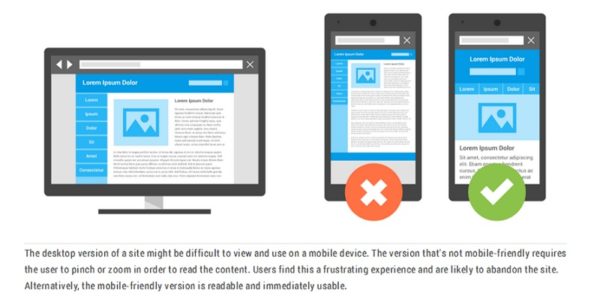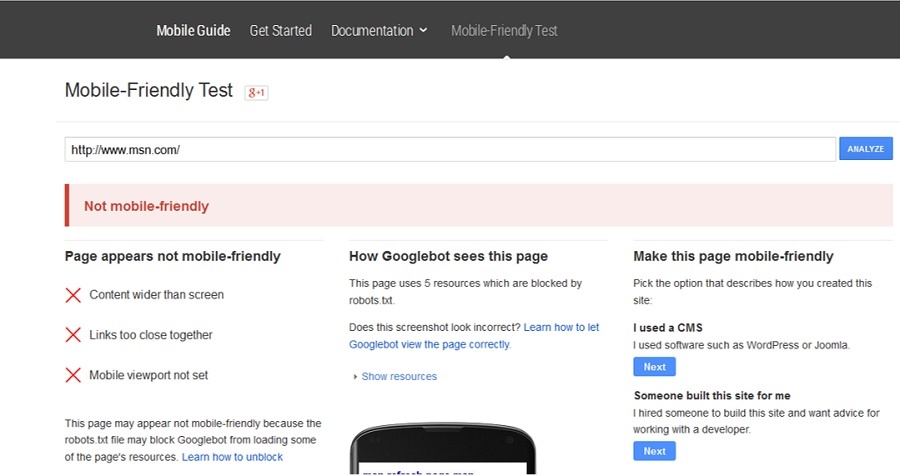Google had the grace to warn us:
"Starting April 21, we will be expanding our use of mobile-friendliness as a ranking signal. This change will affect mobile searches in all languages worldwide and will have a significant impact in our search results."
What It Means
According to the Silicon Valley Business Journal:
"What Google is telling us is that mobile-friendly and mobile-responsive websites will be rewarded with better positioning in Google's mobile search engine results, and thus more traffic from a rapidly expanding user base. Conversely, websites that are not mobile friendly will see less mobile organic traffic, receive a smaller piece of the expanding mobile pie, and will be forced to rely on a shrinking desktop-based audience."
This newest Google update targets websites that are hard to see and use on mobile devices, thus it's been nicknamed 'MobileGeddon.'
Although there are many factors used to rank a page, mobile friendliness will now have a 'significant impact' on rankings. If the pages on your website don't meet Google's mobile-friendly standards, your mobile search rankings could take a serious tumble.
Many business owners are worried about the possible impact of the change. And with good reason when even Google admits the update will affect a large percentage of sites.
How big? The last big change (Panda and Penguin updates) caused over a billion dollars in wealth redistribution from business owners with websites that dropped in the rankings to those who benefited from increased mobile traffic.
MobileGeddon is expected to have a bigger impact.
Why Google Is Making The Change
If you look at the stats of mobile usage, you'll understand why.
Mobile usage - both cell phone and tablet - is exploding. In the US, over half of web traffic comes from mobile devices. And it's still growing.
Another amazing statistic is that 80% of Internet users own smartphones.
Now imagine these mobile users trying to navigate - and even just see - an old-style website. Pinch and swipe. Pinch and swipe. Frustrating.

If your website is hard to use or navigate on a mobile device, users will abandon it in favor of your competitor's mobile-friendly website. As they leave, so do your profits.
With the increasing use of mobile devices, Google wants to ensure those users have a good experience. Thus the change to their algorithm to penalize websites that aren't mobile-friendly.
What To Do About It
First you should determine how much of your web traffic is on mobile and which pages are visited the most often. If you don't have much mobile traffic, you probably won't see much difference in your bottom line. For now.
However if you do get plenty of mobile traffic, you need to determine which pages will need to be updated.
Start by testing your home page and all of the main pages using Google Mobile-Friendly tool.

If your pages fail, you need to update them right away. Make a note of the problems the tool has identified, then check the links provided for action you should take.

Learn more about creating a mobile-friendly website:
How Do I Start Creating a Mobile-Friendly Site?
Or contact us for help. We have over 15 years experience building quality websites.




